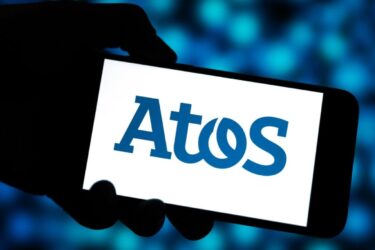The proposed take-over of Compaq by Hewlett-Packard must be the biggest reorganisation in the history of the IT industry. These are changing times and both H-P and Compaq are to some extent being left out on a limb.
This is not due to incompetence on their part, but due to changes in the global economy in general. This merger means that senior executives have not got their heads in the clouds and are making long term plans. Good luck to them. They have in IBM a significant precedent to encourage them; IBM under Gerstner completely refocused with telling effect. But Gerstner’s job at IBM was clearly defined, and that was to clear up all the self inflicted problems created by the "IBM never laid off anyone" culture. Gerstner has also been helped by the development of the Internet and the inevitable swing back to centralised computing, which means mainframes. It also helped because all the competition got out of mainframes too soon, leaving the field open to IBM.
IBM have benefited from the changes affecting the whole industry, while others have not been so fortunate. In particular Digital (formerly Digital Equipment or DEC) failed to make it, not so much because of their failings but because so many things changed around them. For instance Digital pioneered networked computing with Decnet, as well as time-shared operating systems such as VMS. The industry accepted the concept, but implemented it with TCP/IP networking and the Unix or NT operating systems. Digital was left playing catch-up, a common fate of pioneers, and I doubt that even Lou Gerstner could have done much for them.
Digital were not the only company to grow and then die with the minicomputer concept. But the major competitor did not, and that was Hewlett-Packard. It is rather sad that Digital finished up swallowed by Compaq, only to find the remnants finally (I presume) in the tender caring hands of their arch rival. In fact all the minicomputer companies of the 90’s have disappeared except Hewlett-Packard, so it is worth considering why, because it should have an influence on this latest venture. The key differentiation between DEC and HP lay in versatility. DEC was a minicomputer company, blessed with one of the true design geniuses in Gordon Bell, while HP were originally the leading light in high performance instrument design. HP also lead the way with advanced pocket calculators for many years, until they became commodity items and HP have never been in the high volume, low price business. In the beginning HP developed minicomputers specifically for data capture and process control applications, backing up their main line of instruments. Unlike DEC, HP entered the business computer market with the 3000 Series, with a completely different architecture and software to the minicomputer systems. DEC used the same VAX architecture for both process and business applications, albeit with various operating systems. HP were much better placed to avoid conflict with pricing and support in the two different markets. HP also committed to high priced engineering workstations, competing with Sun among others, while Digital were left behind. HP backed the new technologies with RISC processors, Unix and TCP/IP networking which took them to their position of dominance today. DEC were far too late in moving from their VAX, VMS, Decnet systems, the price of being first in this case. Being first is not always the best long term, as witness OS/2 versus NT.
Compaq of course is a different kettle of fish. They are much younger than HP and they are the only survivor of the PC explosion. IBM and HP are still big players in the PC sector, but Dell, etc. are relatively new. Compaq survived in the beginning because they made a portable (luggable) machine compatible with the IBM PC, something which even IBM failed to achieve. They used this to establish a serious foothold in the corporate market for PCs at the right time, which I suspect is why they survived the change in the PC market with the demand for faster, cheaper products. But Compaq seemed aware of the decline in the PC market that we are experiencing today, long before it happened, and have been trying to move upmarket, with mixed success. They have made two strategic take-overs, first Tandem and then Digital. The first was an astute move, strengthening their credibility in the corporate sector and widening their product portfolio without overlap with the core product range. Digital was another story. On the positive side they got a substantial team to attack the growing services sector and a large customer base. On the other hand they got a very good but obsolescent product range, with significant overlap with Compaq’s Intel servers.







